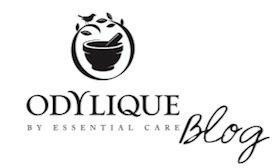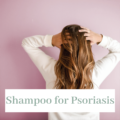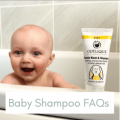Medicated shampoo is usually the quickest relief for dandruff, psoriasis, eczema and head lice, which are common causes of an itchy scalp. Regardless of the cause, there are various natural alternatives you can try to help relieve an itchy scalp.

Why is There a Need for Medicated Shampoo?
If you’ve ever suffered with dandruff, or any other skin condition that can leave your hair looking dry and flaky, you have probably looked into purchasing a medicated shampoo to help. “A lot of people are ashamed of dandruff, and think it’s a reflection of poor hygiene, but that doesn’t have anything to do with it,” says Francesca Fusco, broad certified dermatologist at Wexler Dermatology.
So, what exactly is dandruff?
Dandruff is essentially scalp flaking caused by some type of inflammation. This inflammation is often driven by our skin reacting to yeast on the scalp. Yeast lives on everyone’s scalp, but some people react to it, leading to inflammation, flaking and itchy skin.
Although medicated shampoos can be a huge relief for some people, others choose to go down the more natural root, such as our Tea Tree & Herb Shampoo before trying medicated shampoos.
Medicated Shampoos vs Natural Shampoos
Medicated shampoos for dandruff and psoriasis are widely available, however these often contain strong chemicals, such as coal tar which can help soothe an itchy scalp.
Some haircare ingredients can be harmful to delicate skin, so it’s best to only use medicated shampoos when necessary, and otherwise use a gentle, natural shampoo that is free from SLS, silicone, synthetic colourants, alcohol and perfume.
Our range of shampoos, free from SLS, silicone and other harsh chemicals are available to shop here.
While our Gentle Herb Shampoo is great for more sensitive scalps, a shampoo with tea tree is often lauded by customers as the perfect solution to fighting fungal infections such as dandruff and itchy, flaky scalps.
What are the disadvantages of chemical shampoos?
Speaking of haircare ingredients that can be harmful to delicate skin, it’s really important to note the potentially dangerous chemicals loaded into our everyday haircare essentials.
Research has shown that various chemicals lurking inside our shampoos may induce serious health risks, like memory loss, eye and skin irritation, hair follicle damage that can eventually lead to hair loss, and even cancer.
The description ‘all natural’ has become a buzzword in the beauty industry for environmental friendliness. What some companies leave out however, is that they are still using lathering agents, emulsifiers, and synthetic fragrances that contain hundreds of harmful chemicals. This is called green washing.
Here are just some of the additives to avoid:
- Propylene glycol, known as the main ingredient in antifreeze, is also found in makeup, toothpaste and in your shampoo. It can cause allergic reactions.
- Sodium lauryl sulphate and ammonium lauryl sulphate are common causes of eye irritation.
- Synthetic fragrances contain hundreds of chemicals, some of which have been known to cause headaches, dizziness, rash, hyper pigmentation, coughing and vomiting.
You can read more on our reasons to choose artificial chemical free shampoo on our blog, here.
What are the benefits of natural shampoos?
1. They improve the look and feel of your scalp
Although conventional shampoos undeniably clean the hair, they are known to cleanse sometimes to the point of eliminating the hair and the scalp’s vital natural oils, causing them to dryness, which can lead to itching. And those with skin sensitivities or easily irritated skin may find that synthetic shampoos aggravate these conditions. With regular use natural shampoos can help scalp health, causing hair to feel softer and smoother while enhancing its natural lustre.
2. There is a noticeable difference when switching to natural shampoos
The most noticeable difference one can see when beginning to use a natural shampoo is that it will not produce as much lather as a conventional shampoo, due to the absence of synthetic foaming agents. This is not an indication that the hair is not being thoroughly cleansed, rather it indicates that the hair’s natural oils are not being washed out. Some people recommend hair be washed twice when using a natural shampoo, as the second wash will produce slightly more lather. This is because there is less build-up – dirt, oil, dry skin – to eliminate in the second wash. And when the strands hold more water in the second wash, it increases the shampoo’s ability to produce more lather.
3. Good natural shampoos have a balanced pH formula
Both highly acidic and highly alkaline products can be extremely damaging to the hair cuticle. For this reason, it is important to use a pH-balanced shampoo that is neither too alkaline nor too acidic.
4. They are typically more nourishing for the hair
Natural shampoo formulators typically include more and better quality botanical extracts that impart vitamins, minerals, oils, and botanical extracts to the scalp and the hair follicles. Ayurvedic herbs and ingredients like nettle or horsetail can also gently stimulate the growth of new hair, help hair retain its natural moisture, and enhance the overall texture and appearance of the hair.
5. They are more naturally moisturising
Natural shampoos and conditioners are often enriched with pure and nourishing moisturisers, including gels, oils, and butters that may be obtained from leaves, nuts, seeds, or kernels. Aloe Vera, Coconut Oil, and butters such as Cocoa are among the popular moisturisers that are found in natural shampoos and conditioners.
6. They benefit the environment
The hair benefits of using natural shampoos and conditioners also extend to the health of the environment, as ecologically-friendly ingredients replace the harsh synthetic chemicals, which pollute sewer systems and rivers, and ultimately harm or destroy the ecosystem. Natural, biodegradable shampoos and conditioners simply disintegrate into non-toxic constituents that do not pollute or cause damage to ecosystems.
7. They are non-allergenic
The pure ingredients in natural shampoos and conditioners contribute to the hypo-allergenic compositions and make these products suitable for all skin types, including sensitive or allergy-prone types. Their softer natural fragrances also make natural shampoos and conditioners gentler on the senses, benefitting those with smell sensitivities.
8. There are natural shampoos that are suited to specific needs
There is a wide variety of natural hair care products that are tailored to individual skin and hair needs, offering a range of benefits that target areas of concern for specific hair qualities. Natural shampoos and conditioners are available for those who struggle with conditions such as dandruff and dryness as well as hair types ranging from normal to oily hair.
For example, our Tea Tree & Herb Shampoo was made with botanicals that help balance greasy hair. Ideal for sensitive, dry, itchy, flaky and/or oily scalps.
More Advice?
If you’d like any more advice on natural shampoos or any of our products, please do email us – customercare@odylique.co.uk, add your question as a comment below, or call 01638 491022 – we’re here to help!
What is Dandruff? How To Beat A Flaky Scalp Naturally.

You take care of your hair; you wash it regularly,…




